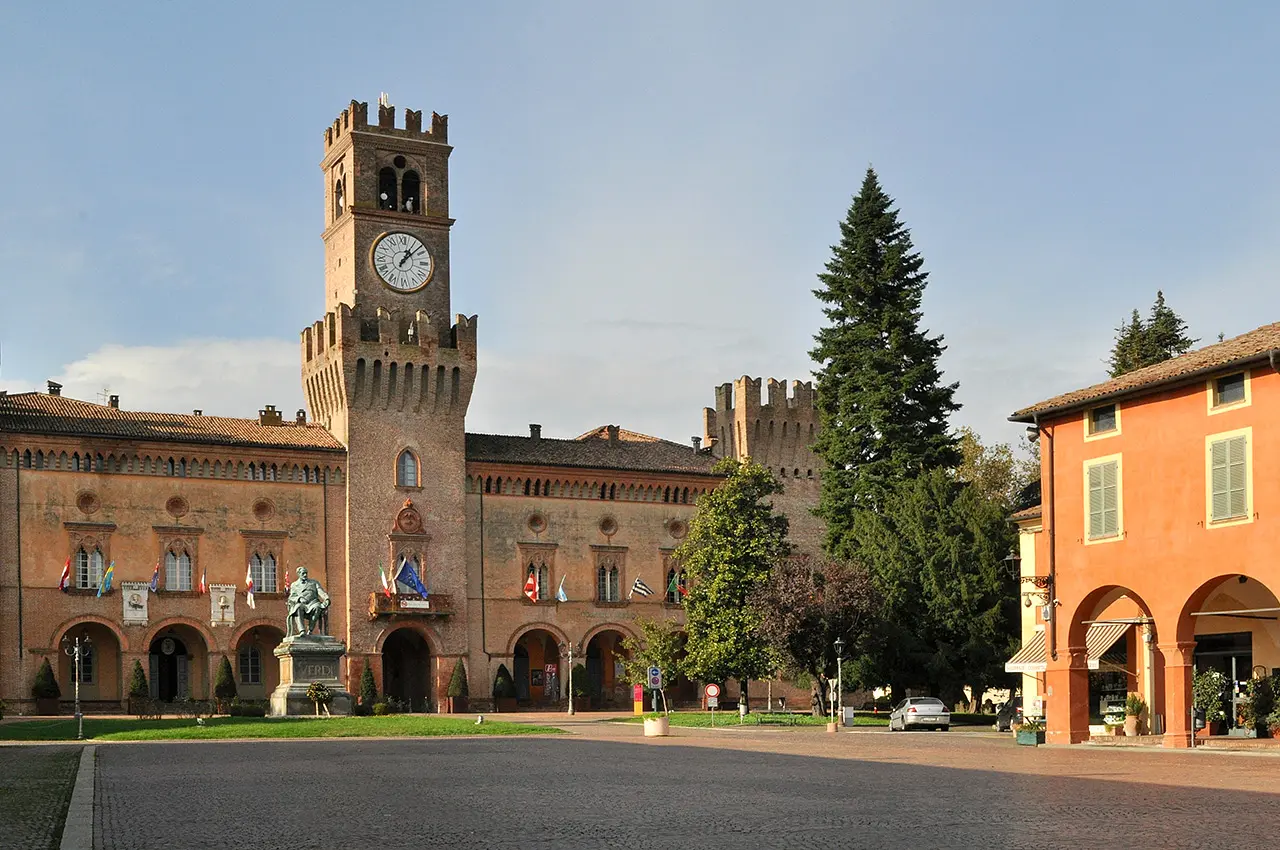SHARRYLAND


Busseto, small capital of Terre Verdiane
A city by imperial decree, it has fame for Giuseppe Verdi, but also for great works of charcuterie art



Where is

What it is and where it is
Busseto is the hometown of Giuseppe Verdi, depicted in a bronze statue that stands out in the main square, against the backdrop of the 13th-century fortress, right in front of the gracious theater that has borne his name since 1868; the maestro seems to watch over the town, quietly seated on a stool. This is the opening glimpse. Then you discover the historic center that preserves the network of streets and glimpses of the time when it was the capital of the small Pallavicino state.
Why it is special
We are in one of the inescapable places for fans of Verdi's opera. First of all, in the center you visit Palazzo Orlandi, home to the Museum of Verdi's Memorabilia, where, among other things, you can admire the collection of batons used in Verdi's performances by illustrious conductors. Then, when it comes right down to it, you can still find those legendary trattorias of the Bassa Parmense. Don't miss: the spalla cotta of San Secondo, cappelletti in broth and a kind of cotechino, mariola, which is served with pear mostarda...
Not to be missed
Ideally, you should happen to be in Busseto for one of Verdi's performances at the Verdi Theater from October to May. Within the walls of the Rocca Pallavicina you will thus discover a hall that is a gem, 307 seats, learning that in 1926 Arturo Toscanini directed an unforgettable Falstaff there. It goes without saying that to conclude The Verdi Tour one will have to visit the maestro's moving birthplace, in Roncole, and the villa in Sant'Agata, rich in memorabilia, which was his residence for fifty years until his death.
A bit of history
The Pallavicino family was one of the major feudal families of northern Italy. In the Middle Ages they had power in the area between Cremona, Parma and Piacenza, establishing a state there headed by Busseto. In 1533 Charles V of Hapsburg, on a visit to his vassals, promoted the castle town to the rank of city and allowed the imperial black eagle to be included in the coat of arms for its loyalty to the Ghibelline cause. It is the heraldic symbol that today accompanies on the label the noblest product of local charcuterie, culatello di Zibello DOP.
Curiosity
The expressive statue of Giuseppe Verdi in the town's main square is the work of Cremonese sculptor Luigi Secchi (1853-1921), author of numerous monuments of illustrious men of his time. Among others are precisely two figures from Verdi's closest circle: Giulio Ricordi, who was the maestro's principal publisher (Milan, Piazza della Scala) and Arrigo Boito, librettist of Otello and Falstaff (Milan, Ridotto della Scala).
Enter the Map of Italy's Undiscovered Wonders and find treasures where you least expect it... Inspire, Recommend, Share...
The Map thanks:
Enter the Map of Italy's Undiscovered Wonders and find treasures where you least expect it... Inspire, Recommend, Share...
Where is


